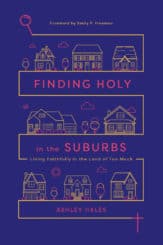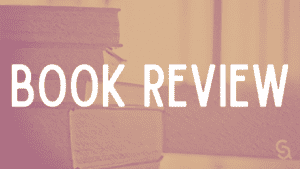
If you were hired as the location scout for a movie about suburbia, what would you look for?
My list:
- Minivans
(bonus points for Ivy League/SEC bumper stickers) - Kids playing soccer in matching uniforms
(bonus points for goldendoodles in bandanas on sidelines) - Target stores
(bonus points for Trader Joe’s less than a mile away) - Clean streets
(bonus points for annual flowers in shared spaces) - Public schools announcing national awards
(bonus points for sports and academics) - Stylish moms in athleisure wear
(bonus points for t-shirts that say #BLESSED or “It’s Wine O’Clock”) - Green grass
(bonus points for a lawn care truck on the street) - CrossFit boxes
(bonus points for a Christian element in the logo)
It pains me to admit this truth, but this is where I live. In fact, a satirical movie about the suburbs was filmed at the house three doors down from mine this summer (we live south of Atlanta, a few miles from where the Marvel movies are filmed). The film crew sent us emails asking if we could show up at a nearby park in pastels as fans to film a peewee soccer game. They also asked if any of us would like to be extras for the pool party scene. At the bus stop we laughed, wrapped our cardigans tighter around our tummies, and politely declined.
I was nervous to pick up Ashley Hales’s new book, Finding Holy in the Suburbs: Living Faithfully in the Land of Too Much. Was it going to be boring? (It’s about the suburbs, after all.) Would she give me more stuff to feel bad about? Would she help me become more like whomever God is calling me to be?
I was nervous to pick up Ashley Hales’s new book, Finding Holy in the Suburbs: Living Faithfully in the Land of Too Much. Was it going to be boring? (It’s about the suburbs, after all.)
I didn’t expect Hales to open with the story of the Prodigal Son (Luke 15:11-32), and flip it upside-down. I fell in love with this parable in college when I read The Return of the Prodigal Son by Henri Nouwen. His gentle meditations on Rembrandt’s famous painting and the gospel story nudge readers to see how they are like the younger brother who runs away and later returns, the elder brother who resents unearned favor, and the father who loves beyond all expectations.
I always pictured that spoiled son running away from the suburbs, toward a slick, vodka commercial kind of lifestyle. I didn’t consider that for some (many?) of us, when we run away from God it’s actually toward the kind of safety and predictability found in the suburbs. There we can have everything we want and need, without God, it seems. Hales writes:
“This story of the prodigal son can feel a bit tired and worn if you’ve been around church much. Yet we need to rehear it because the suburbs are full of younger brothers trying to clean up their act to be accepted—to work harder, be responsible, and tone down the impulse and pleasure to fit in to a buttoned-up world.
The suburbs are also full of elder brothers turning their nose up at the lavishness of grace, because…we’ve worked hard for what we’ve earned. Yet this is just one place in Scripture where God shows us who he is: a loving father and gracious host.
This story shows us our deep hunger to belong, to find home, to root ourselves in place, and how, when we’re hungry, we fill ourselves up with other things that promise to sate our hungers instead of running home to our Father.”
Hales then tackles the driving forces behind the suburban American Dream: consumerism, individualism, busyness, and safety. I recognized myself in her honest admission of what prompts her needs for retail therapy, identity re-invention, and security. At the end of the chapter called Beyond the Gated Community: Safety, Hales quietly declares, “I don’t want a gated heart.” I whispered that sentence out loud, circled it, and re-wrote it in the margin as a prayer.
It’s fitting that Hales suggests the best next step would be repentance. She asks,
“What in your life do you need to repent of? Where have you unthinkingly bought the lie that God is not good, that you need something else, something more? Where have you privileged your own growth and success over the love of neighbor? How have you numbed the pain or even the ordinary?”
I’ve been on the Christian journey for many years, and have been led toward repentance, and ultimately sweet healing, in these areas before; but not specifically as a parent. At times I’m desperate to push my kids to the front of the line for favor with God and their peers. I sometimes buy things, ask for things, and sacrifice for whatever it might take for my kids to heal, grow, and thrive, even at the expense of other kids. Lord, have mercy. I need to carefully examine when I let the suburbs shape and sabotage what is truly best for my kids. I need a fresh vision.
At times I’m desperate to push my kids to the front of the line for favor with God and their peers.
Hales cast that new vision for me in the chapter called Paper Birds and Human Flourishing: Shalom. I hope I remember to re-read it at the start of the holidays, new year, summer vacation and school. I crave shalom, especially during those times when expectations are high.
“Shalom is the word we reach for to talk about justice, mercy, and the God-honoring relationships between people, places, and things. It’s the interconnectedness that we long for; it’s the satiation of desire and longing; it’s the proper relationship between earth, humankind, and our work. Our word shalom points to the acceptance, unity, peace, flourishing, and rightness of the created order that God originally intended and to which we are moving. Shalom can only grow from the fruit of lament and repentance, and from clinging to Christ who clothes us in his righteousness.”
I desperately want the acceptance, unity, peace, flourishing and rightness God originally intended to flourish in the 27 houses on my street, the 22 families in my daughter’s class, and the 34,000 people that live in my suburb. But seriously, how am I going to do that? Hales keeps a level head: “We must start small and start somewhere if we’re not going to be overwhelmed and do nothing”
What she recommends is the hope, humility, and sacrifice that come from leaning on Yahweh-Shalom (“the Lord is Peace,” the name Gideon calls God in Judges 6) instead of my family’s fragile status.
“We have to know our neighbors and our own hearts well enough to ask hard questions and draw people out of hiding. We must practice vulnerably sharing our failures first and the goodness of Yahweh-Shalom to redeem our failures.”
Starting small means greeting my neighbors when I walk my dog, asking questions, and listening. It means owning my poor choices (“sorry I was so grumpy and didn’t stop to chat yesterday”) and risking being vulnerable first (“we had such a hard time our first year in Georgia and cried every weekend”). That’s even easier than hoping my daughter wins her first horse show and my husband gets his promotion so we can humble brag from the front porch. The envy and competition is so high in my town that my local psychiatrist friend refers to it as “a boil that needs to be lanced.” I wonder if small steps of sharing failures will relieve the pressure.
But that’s going to be a sacrifice for me. I’m not eager to be the loser who always has a list of failures to share when folks are expecting to talk about weekends at the lake. It’s going to be scary for me to invite the neighbor no one seems to like over for dinner. But maybe that’s where this new vision of shalom will begin to take hold. As Hales writes, “Flourishing is only found on the other side of sacrifice.”
I don’t know how these small steps might impact my suburb. Maybe grace and healthy vulnerability. Maybe it will stretch to the next street over. Hales’s big picture excites me:
“Experiencing shalom, suburbs would evidence strong marriages and stalwart communities. Children would be safe and free, and yet live for more than the latest gadget or what they could acquire. Imagine children growing up in safety, but not a safety borne from walling out others who aren’t like us. Imagine people working hard, not for their beach vacation but the good of the community. Imagine a tight-knit community where we valued our particularities and differences, knew each other’s names, and we saw needs and sought to meet them. Imagine homes flung open in hospitality, not traded in bigger and better. Imagine a community where it was safe to be broken, where kindness was the first word, where privilege and affluence bred generosity, justice, and humility not simply for that community’s sake, but for the communities around it. Wouldn’t that be a revolution in the suburbs?”
This is what I want to champion in my home. This is the vision I want to hold tightly in the school car line. This is what I want to humbly offer, over the years, to my neighbors. I’m thankful for the clear, gentle redirect Ashley Hales offers in Finding Holy in the Suburbs. (And if you can believe it, you can even buy this book at Target!)
 Aimee Fritz delights in telling long, true stories about compassion, souls, and big mistakes, hoping to help families become lovable and loving World Changers. She’s currently writing the Family Toolkit for Kent Annan’s forthcoming book, You Welcomed Me: Loving Refugees and Immigrants Because God First Loved Us. She previously wrote the Family Toolkit for Annan’s Slow Kingdom Coming: Practices for Doing Justice. Loving Mercy, and Walking Humbly in the World.
Aimee Fritz delights in telling long, true stories about compassion, souls, and big mistakes, hoping to help families become lovable and loving World Changers. She’s currently writing the Family Toolkit for Kent Annan’s forthcoming book, You Welcomed Me: Loving Refugees and Immigrants Because God First Loved Us. She previously wrote the Family Toolkit for Annan’s Slow Kingdom Coming: Practices for Doing Justice. Loving Mercy, and Walking Humbly in the World.

